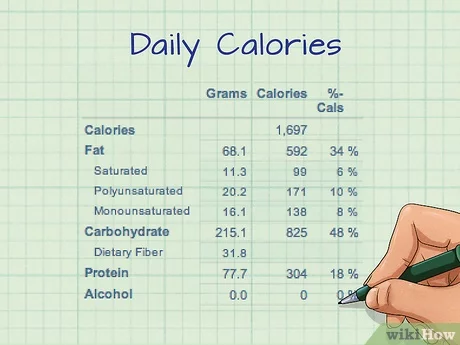Experts reveal top nutritional tips for gaining muscle
Gaining muscle is not just down to how many hours you spend in the gym, it is essential that you are balancing your nutritional intake alongside your training in order to efficiently increase muscle mass. Fitness expert Anthony O’Reilly from BarBend has revealed a guide to help people learn how to gain muscle
Calculate your calories
Gaining muscle involves striking the right balance between eating excess calories to build muscle and overeating which may cause weight gain, so it’s vital that you track your calories as precisely as possible. It’s near to impossible to guess your exact calorie intake so to properly track your calories, it’s best to use a calorie counting tool such as a phone app so you can see your exact nutritional intake and tailor it to your body and routine.
Master the timing of protein intake
In the past, there has been a lot of talk surrounding the term ‘anabolic window’ which means that there is a very limited time period after working out for protein or carbs to be absorbed properly by muscles to aid muscle growth. Despite this, new studies have found that spreading protein intake out over the course of the day is still an effective way for your body to process the protein to build muscle.
Eat the right amount of fat
Although fatty foods are generally bad for you due to the link between saturated fats and heart disease, there are also good fats that help contribute to the hormonal functions of the body including testosterone production which is necessary for muscle growth. Some examples of good fats are avocado, salmon, peanuts, almonds, pumpkin seeds, sesame oil etc, which all provide essential nutrients for efficient cellular function and overall health.
Track your macros
Although tracking calories constantly is normally not advised, if you are wanting to really build muscle you will need to make sure you are consuming essential macronutrients for muscle growth such as carbohydrates, fats and protein. Carbohydrates provide energy for exercising; fats support hormonal function and protein is integral for building muscle but the number of macros you should be eating is completely dependent on the individual and what you are trying to achieve.
Focus on your protein intake
When looking to gain muscle, the most important macronutrient to focus on is protein. Also known as essential amino acids (EAAs), there are nine that are an integral part in maintaining a healthy diet and building muscle. As part of a normal western diet, you are probably already eating enough protein without realising with white and red meat being the highest sources of protein. However, vegetarians and vegans should be a little more mindful when trying to build muscle, as most vegetable-based proteins lack some EAAs. A good variety of alternatives such as soybeans, lentils, rice, beans and other grains should ensure that you are consuming enough protein for your body.
Eat the right amount of carbs
Carbohydrates are often seen in a negative sense when it comes to diet plans and are often limited or sometimes even completely cut out. When it comes to building muscle however, carbs are a fundamental part of a nutritional plan. When exercising, carbs are converted to glucose and restores glycogen which provides energy to the body and helps endurance in the gym. The only thing you should be careful of is making sure you are consuming the right sources of carbs, some of which include brown rice, oatmeal, wholewheat bread or pasta etc.
Further information can be found at www.barbend.com who provided the expert commentary.
Help keep news FREE for our readers
Supporting your local community newspaper/online news outlet is crucial now more than ever. If you believe in independent journalism, then consider making a valuable contribution by making a one-time or monthly donation. We operate in rural areas where providing unbiased news can be challenging. Read More About Supporting The West Wales Chronicle

























